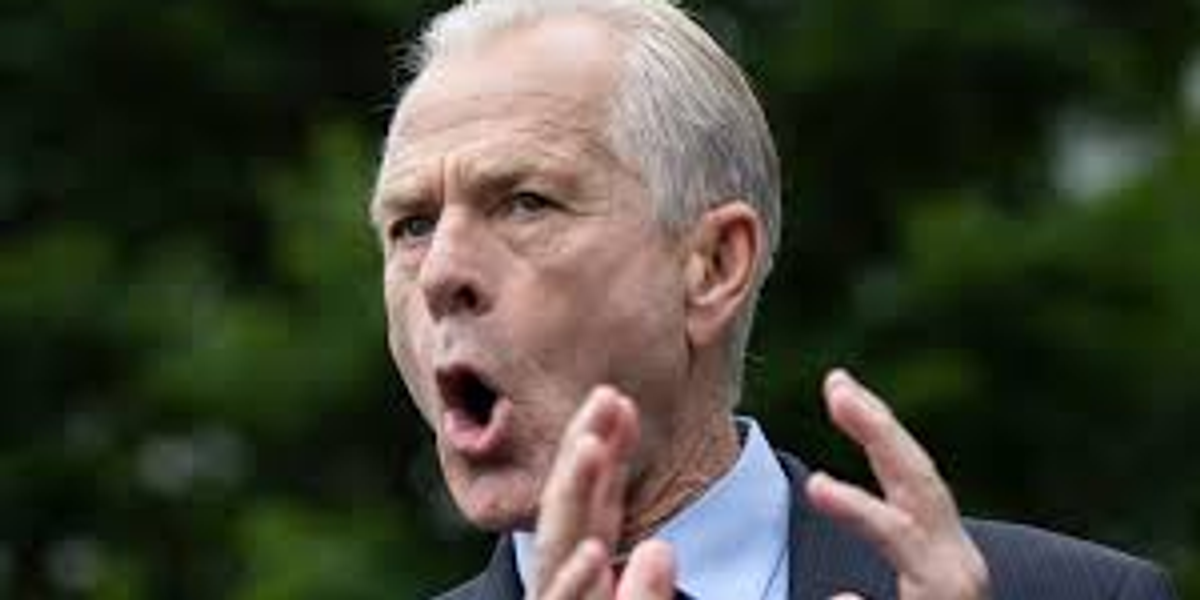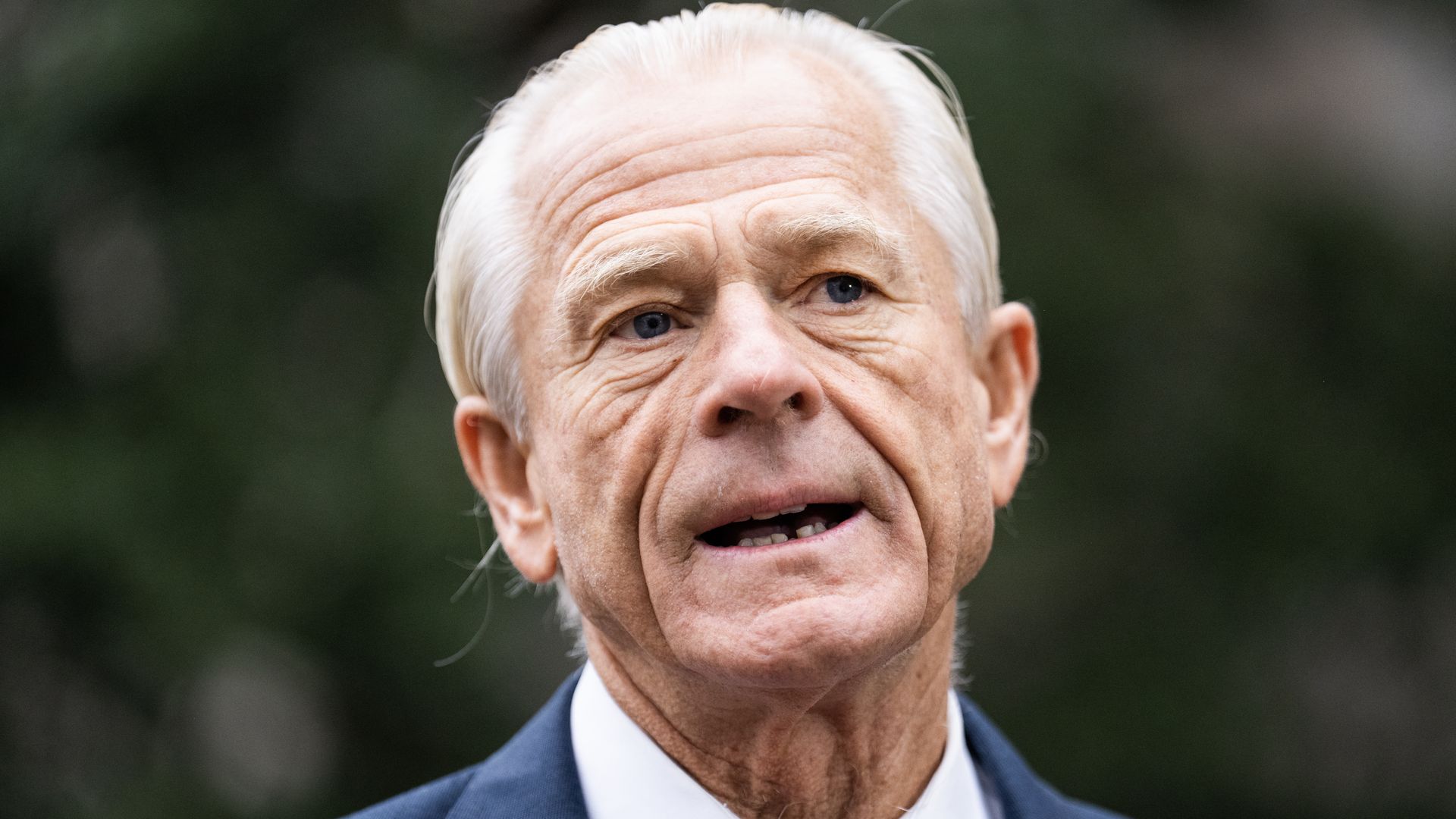Peter Navarro has become a household name in the world of economics and politics, especially for his role as a key advisor to former U.S. President Donald Trump. His insights and strategies have shaped significant economic policies that affect millions of Americans and global economies. But who exactly is Peter Navarro? In this article, we delve into Peter Navarro's origin, uncovering his early life, educational background, career journey, and his impact on economic policies.
Beyond his public persona, Navarro's origin story is one filled with intellectual pursuits, academic excellence, and a relentless drive to influence policy-making. His journey from academia to the White House highlights his expertise in economics and trade, making him an authoritative voice in these fields.
This article aims to provide a comprehensive understanding of Peter Navarro's background, exploring his life before the spotlight, his contributions to economic policies, and the controversies surrounding his work. By the end of this article, readers will have a deeper appreciation of the man behind the policies that have shaped the economic landscape.
Read also:Elise Jordan Wikipedia Comprehensive Biography And Career Insights
Table of Contents
- Biography of Peter Navarro
- Early Life and Family Background
- Education and Academic Achievements
- Career Highlights and Major Contributions
- Peter Navarro's Economic Views and Policies
- Trade Strategy and Its Impact
- Controversies Surrounding Peter Navarro
- Expertise and Authority in Economics
- Legacy and Future Prospects
- Conclusion and Call to Action
Biography of Peter Navarro
Personal Data and Biodata
Peter Navarro's life is as fascinating as his professional achievements. Below is a summary of his personal data:
| Full Name | Peter Anthony Navarro |
|---|---|
| Birth Date | January 27, 1952 |
| Place of Birth | Long Island, New York, United States |
| Profession | Economist, Author, Professor, and Political Advisor |
| Education | Bachelor's Degree from Columbia University, MBA and Ph.D. from Harvard University |
Peter Navarro's biography reflects a blend of academic excellence and professional achievements, setting the stage for his influential role in economics and politics.
Early Life and Family Background
Peter Navarro was born on January 27, 1952, in Long Island, New York. His family background played a crucial role in shaping his early life and worldview. Growing up in a middle-class family, Navarro was exposed to the economic challenges faced by the working class, which later influenced his economic policies.
Navarro's family encouraged education as a pathway to success. His parents instilled in him the value of hard work and perseverance, traits that would define his career path. These early influences laid the foundation for his future contributions to economic policies and public service.
Education and Academic Achievements
Peter Navarro pursued higher education with vigor, attending Columbia University where he earned his bachelor's degree. He then went on to Harvard University, where he obtained both his MBA and Ph.D., focusing on economics and international trade.
During his academic years, Navarro demonstrated exceptional intellect and a deep understanding of complex economic theories. His academic achievements were not just confined to the classroom; he published several research papers and books that explored critical economic issues. These works established him as a thought leader in the field of economics.
Read also:Remote Iot Device Connect Software A Comprehensive Guide
Career Highlights and Major Contributions
Academic Career
Peter Navarro's career began in academia, where he held teaching positions at several prestigious universities. His academic career was marked by innovative research and insightful lectures that challenged conventional economic theories. Navarro's work in academia earned him respect and recognition from peers and students alike.
Transition to Public Policy
Navarro's transition from academia to public policy was a natural progression of his career. His expertise in economics and trade made him a valuable asset to policymakers. He served as a key advisor to former President Donald Trump, focusing on trade policies and economic strategies.
Navarro's contributions to public policy were significant, influencing decisions that affected global trade relations and domestic economic policies. His insights and recommendations played a crucial role in shaping the economic landscape during his tenure.
Peter Navarro's Economic Views and Policies
Peter Navarro's economic views are rooted in his academic background and practical experience. He advocates for protectionist trade policies, arguing that they are essential for safeguarding domestic industries and jobs. Navarro believes that fair trade agreements can level the playing field for American workers and businesses.
His policies emphasize the importance of reducing trade deficits and promoting American manufacturing. Navarro's economic strategies aim to strengthen the U.S. economy by addressing imbalances in international trade.
Trade Strategy and Its Impact
Peter Navarro's trade strategy focuses on renegotiating existing trade agreements to ensure they are beneficial to the United States. His approach involves imposing tariffs on imported goods to protect domestic industries from unfair competition.
Some of the key impacts of Navarro's trade strategy include:
- Increased focus on domestic manufacturing
- Reduction in trade deficits
- Enhanced negotiation stance in international trade talks
- Controversy over the economic effects of tariffs
While his strategies have been praised for their potential to boost the U.S. economy, they have also sparked debates over their long-term effects on global trade relations.
Controversies Surrounding Peter Navarro
Peter Navarro's career has not been without controversies. His strong stance on trade policies and economic strategies has drawn criticism from various quarters. Critics argue that his protectionist policies could lead to trade wars and harm global economic relations.
Despite these criticisms, Navarro remains steadfast in his convictions, believing that his policies are essential for the long-term health of the U.S. economy. The controversies surrounding his work highlight the complexities and challenges of implementing economic policies in a globalized world.
Expertise and Authority in Economics
Peter Navarro's expertise in economics and trade is widely recognized. His academic background, combined with his practical experience in public policy, establishes him as an authority in these fields. Navarro's publications and research have been cited by scholars and policymakers worldwide, underscoring his influence in shaping economic discourse.
His authority is further strengthened by his ability to communicate complex economic concepts in an accessible manner. Navarro's writings and public appearances demonstrate his commitment to educating the public about critical economic issues.
Legacy and Future Prospects
Peter Navarro's legacy in economics and public policy is significant. His contributions have left an indelible mark on the economic landscape, influencing policies that affect millions of people. As the world continues to grapple with economic challenges, Navarro's insights and strategies remain relevant.
Looking to the future, Navarro's prospects are promising. His continued involvement in economic discussions and policy-making ensures that his influence will endure. Whether through academia, public service, or private enterprise, Navarro's legacy is likely to inspire future generations of economists and policymakers.
Conclusion and Call to Action
In conclusion, Peter Navarro's origin story is one of intellectual curiosity, academic excellence, and a dedication to public service. His contributions to economics and public policy have been significant, shaping the economic landscape in profound ways. Understanding Navarro's background and achievements provides valuable insights into the complexities of economic policymaking.
We invite you to share your thoughts and engage in discussions about Peter Navarro's work and its implications. Leave a comment below, share this article with others, and explore more content on our website to deepen your understanding of economics and public policy.
References:


